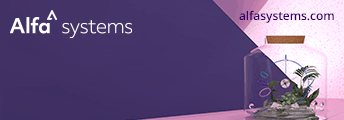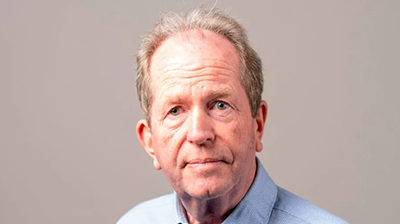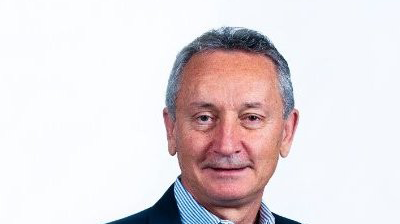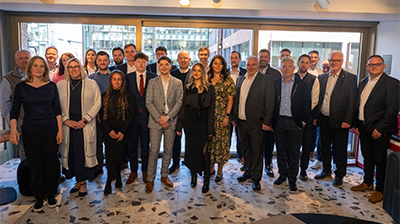
Boardroom strategies laid the groundwork for the response to this year’s economic crisis, but employees on the frontline ensured successful change; next year skilled staff will be more important than ever. John Maslen reports.
The COVID-19 crisis of the past year has hammered home two fundamental truths about the path to success in the asset finance industry.
Firstly, a company is only as good as the sum of its parts, and secondly, a strong recruitment programme is critical to ensuring long-term growth and customer loyalty.
Asset finance leaders have praised their back office and frontline staff for the critical role they have played in adapting to the Coronavirus crisis.
Thousands of employees throughout Europe faced the combined challenge of adapting to home working while also supporting their companies and customers during months of upheaval that reshaped businesses through rapid innovation and change.
A mountain of customer enquiries and requests for forbearance had to be managed in a compliant way, with some companies able to streamline their approach because of previous investment in digitalisation; others had to quickly implement digitalisation and automation processes in response to the pandemic.
Amidst all this demand, core business operations still had to continue, with some customer segments requiring support to cope with growth generated by the pandemic, ranging from manufacturing to transport.
Neil Davies, chief executive officer of Close Brothers Commercial, part of Close Brothers, said: “What has really impressed me during the pandemic has been the dedication of our staff, who have really looked after our customers – including offering restructures – while simultaneously managing to increase new business levels, all while many are working remotely.
“What also struck me was the robustness of our planning. While we didn't expect a global pandemic, our planning for a downturn left us in a very good position to manage the COVID-19 challenges and everything that came with it.”
Asset finance companies have also relied upon third-party suppliers to provide the same high levels of support to ensure continuity of operations, which has been a valuable test of the quality of supply arrangements.
Nick Leader, chief executive officer of lease insurance services provider Acquis Insurance Management, said: “A key highlight during the year has been the way in which our staff have adapted to home working with such positivity and how we have maintained our very high service levels to our customers, leading to onboarding more new clients than in any previous year. "
Companies throughout the 2020 Asset Finance Europe 50 report on the region’s largest asset finance providers have reported that their responsive approach has generated new business during a tough year.
A key factor in delivering this growth is strong relationships, where finance providers have a deep understanding of their clients so they can take a long-term view of risk when considering how they can provide support during challenging economic times.
Jop van der Sluis, head of asset-based finance at Rabobank NL, said: “Asset based finance has proven to be an important and reliable source of funding for our clients.
“Even in the case of client profiles deteriorating, we have still been able to provide (or continue) attractive financing solutions based on the quality of the underlying portfolios and the strength of the financing structures.”
Strong relationships will be vital to asset finance companies over the coming year as the economic impact of the COVID-19 crisis is felt throughout Europe.
There will be a “multitude of challenges” according to Davies, that will focus the attention of boardrooms throughout 2021.
This includes the rise of “zombie companies”, which are only generating enough cash to survive, potentially through government support.
Davies said: “These are firms that will need additional monitoring and possibly support to survive. The reality is that some companies may find themselves in distress once the government support schemes are wound up.”
Companies will also be keeping a close watch on changing asset values as economies experience an expected downturn.
With digitalisation playing an increasingly important role in the asset finance market, sourcing the right talent will also be a priority.
“There will be an increased push across many industries to digitalise and this will lead to shortages of expertise and bandwidth, resulting in companies competing for a smaller pool of talent,” Davies added.
In addition to operational challenges from increased delinquencies and defaults, long-term trends will continue to reshape the market.
The move from ownership to usage-based models will continue, according to Van der Sluis, while COVID-19 is likely to have a lasting impact on mobility trends, particularly if many employees continue to work from home.
Although major challenges remain, the fundamentals of good business that have carried asset finance companies through this year’s global crisis will continue to be essential to managing the challenges of 2021.
Strong customer relationships and high service levels, driven by loyal, qualified employees, will ensure that companies continue to thrive in the long term.
Frank Vang-Jensen, president and group chief executive officer of Nordea, said: “Despite the COVID-19 pandemic, we have continuously moved in the right direction towards our targets. Our customer satisfaction levels are now higher than before the outbreak and our assessment is that we are growing faster than the market in several areas.
“We remain committed to delivering on our financial targets and meeting our key priorities: to optimise operational efficiency, drive income growth initiatives and create great customer experiences. In doing so, we will continue to fulfil our responsibility towards our customers, employees, and shareholders. This benefits both society and our business.”
* This article first appeared in the Asset Finance 50 Europe (AFE 50). To download your copy, complete the form below.







